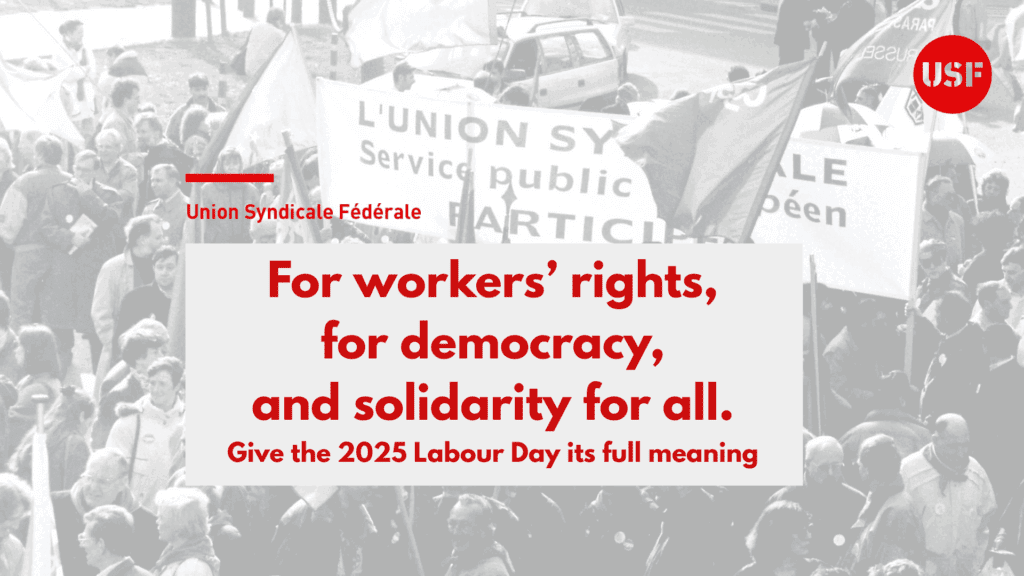The Congress sets a series of specific priorities for USF and the Federal Committee in particular, under the form of a resolution on digital transformation in the world of work :
- support the implementation of the digital environment with a view to maximising its benefits and reducing its disadvantages for workers;
- avoid job losses for workers;
- avoid a decline in the quality of work ;
- protect the contractual status of workers, particularly in the face of the growing uberisation of the world of work;
- prevent gaps from widening or appearing: ex-generational gap, gender digital gap, social and income gaps;
- combat low pay;
- fight for an organisation of work that improves the reconciliation of work and family time and not invades private life.
Discover here the Resolution on Digital transformation (FR). Here’s an extract of the editorial of Agora 81, on digitalisation :
The diffusion of technology and its uses has had a similar impact on the professional sphere, where it has grown exponentially in recent years, leading to new forms of work, new concepts of work spaces and working time, and disrupting the professional world in general. These new tools open up an immense horizon for us in terms of both access and knowledge sharing and access to services and products in a limited time and at a lower cost.
Dematerialization also allows us to work remotely with all the flexibility that this implies, allowing many of us to manage professional emergencies remotely or to adjust working hours if necessary according to more personal requirements. This mutation also has its drawbacks. Hyper-connectivity is an example; it is at the origin of the theme chosen for this issue of our magazine. This phenomenon blurs the boundaries between professional and private life and leads to health problems in many cases.




